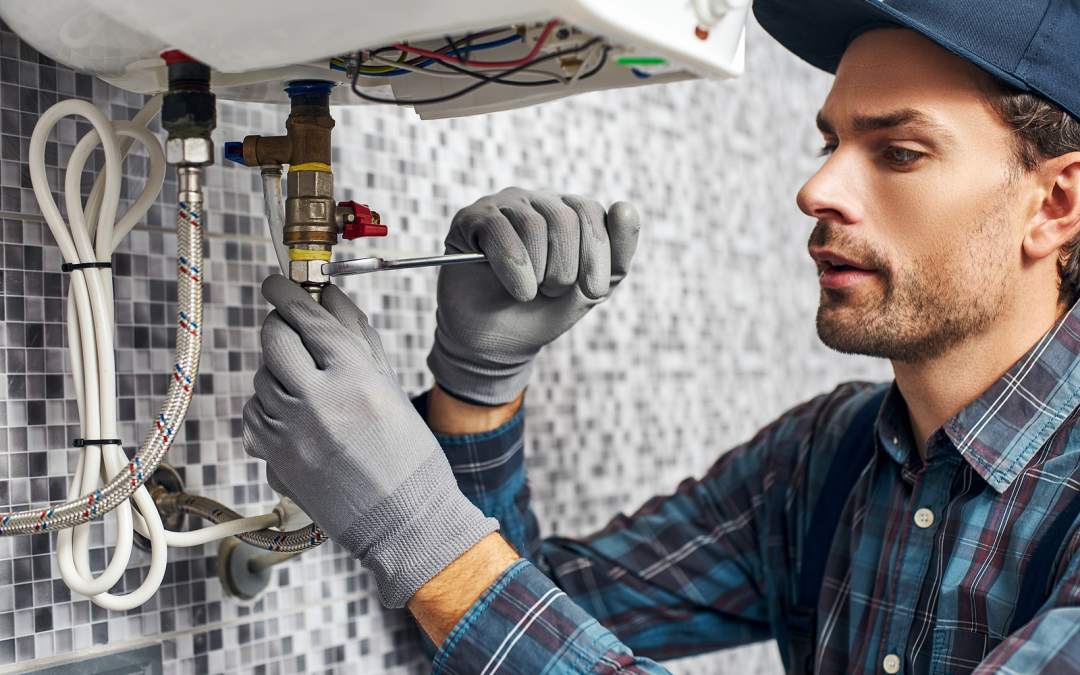Many Brits got their first taste of winter weather recently, with temperatures plummeting across much of the country.
Although there are many things to love about snow, from snowball fights to perfect wintry landscapes, something that nobody enjoys is burst water pipes. However, adverse conditions increase the chances of pipes freezing, which could put many people’s homes at risk.
To avoid your pipes bursting over the next couple of months, read our tips.
Keep the pipes insulated
Pipes burst when they freeze and the water expands as it turns to ice. This increases the pressure and can cause the piping to crack.
Many people do not know their pipes have burst until the weather warms up and the ice thaws, as this leads to water leaking from the pipes through to the house.
Therefore, the best thing you can do to protect your pipes from freezing is to keep them warm with insulation.
Call in an emergency plumber to cover the pipes with foam sleeves, as this will stop the water inside from turning to ice. This is particularly important in areas of the house that are unused and, therefore, colder, such as garages, basements and lofts.
Do not forget to insulate pipes outside of the house as well, including valves, fittings and outside taps.
Turn taps on and off
As well as insulating the pipes, it is a good idea to keep turning the taps on and off.
This helps keep the water at a reasonable temperature, so the temperature does not drop to below freezing.
Turn water off if you’re going away
British Gas also recommends switching the water off if you’re going away. This is particularly relevant to those who are visiting family or friends over Christmas.
By preventing water running through the taps, you will ensure there is nothing that can freeze in the pipes during your absence.
You might even want to make sure the system is drained by running the water until nothing more comes out.
Insulate water tanks
As well as insulating pipes, you should consider insulated water tanks, as it is a leading cause of burst water pipes.
If your water tank is in a cold part of the house, such as a loft, garage or basement, it is sensible to cover it in insulation.
Turn the heating on
People worried about the cost of their energy bills might be tempted to keep the heating turned off, even on the coldest of days. However, this could cost them more in the long run, as having a cold house could lead to pipes from freezing.
If this happens and the water pipes burst, this could mean ceilings falling through, or walls needing replastering or repainting.
Set the thermostat so it turns on if the temperature falls below a certain number. This will also help keep you warm and safe during the harsh winter months too.
You should keep the heating on even if you are going away, as you do not want to come back to a flooded or damaged house!
Open cupboard doors
It is also sensible to open cupboard doors if there are pipes or tanks inside. This helps warmer air from the rest of the house to circulate in the cabinet, keeping them warmer and reducing the chances of them freezing.
Prevent any draughts in the house
As well as turning the heating on, it is important to prevent any draughts in the house, as these could cause temperatures to plummet.
For instance, you could seal edges around windows or doors where heat can often escape. It is also worth having draught excluders on doors, closing curtains and putting down plenty of rugs.
The Energy Saving Trust also recommends roof and loft insulation, cavity wall insulation, floor insulation and upgrading windows to double-glazing for long-term measures to keep the house warmer.
To draught-proof your home, you could use foam strips on window edges, have a keyhole cover to prevent heat loss through the keyhole, fit a cap over the chimney pot, fill in old fan outlets, or repair any cracks in the wall.
Doing this could save homeowners between £45 and £65 a year on their energy bills, as well as plenty more on emergency repair work if the pipes burst because they got too cold.
These are just a few ideas on how to prevent pipes from bursting this winter, though it is also sensible to have your boiler regularly serviced to identify any cold spots as well. This will ensure there are no areas where freezing is likely to occur.

